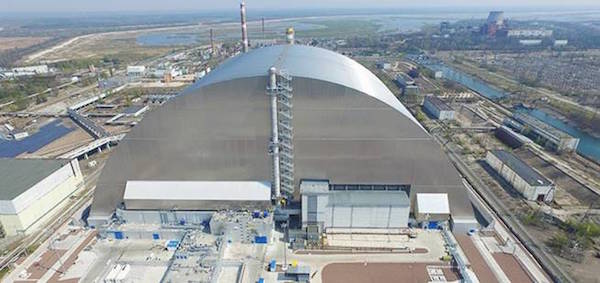 Ukraine has informed the International Atomic Energy Agency (IAEA) about continuing operational challenges at the Chernobyl NPP following the Russian occupation of the site between 24 February and 31 March, Director General Rafael Mariano Grossi has said.
Ukraine has informed the International Atomic Energy Agency (IAEA) about continuing operational challenges at the Chernobyl NPP following the Russian occupation of the site between 24 February and 31 March, Director General Rafael Mariano Grossi has said.
Five weeks after Russian forces withdrew from the Chernobyl NPP, Ukraine said several facilities at the site still cannot operate normally because of, for example, disrupted logistical routes for the supply of equipment and spare parts, and lack of safe access for the necessary number of personnel to ensure safe operation. As a result, State Nuclear Regulatory Inspectorate of Ukraine (SNRIU) has been taking regulatory action including suspending some of the licences at this site.
SNRIU said on 5 May it had terminated the validity of a number of licences for carrying out activity in the field of nuclear energy use in the Exclusion Zone based on the analysis of information received from enterprises engaged in the nuclear energy use in the Exclusion Zone. SNRIU said it “has reviewed the issue of licensees’ capabilities to comply with the conditions of the licensed activities in accordance with the rules and standards on nuclear and radiation safety and licensing conditions”.
Due to the inability of licensees to comply with the terms and conditions for carrying out activities established by the rules and standards on nuclear and radiation safety, the following licences were terminated:
- For decommissioning Chernobyl NPP (ChNPP) units 1, 2 and 3;
- For Radwaste management (ChNPP, Central Radioactive Waste Management Enterprise (CRME));
- For use of radiation sources (CRME, ChNPP, Ecocenter, Institute for Safety Problems of NPPs of the National Academy of Science of Ukraine).
SNRIU said this was not the fault of the licensees, but due to force majeure circumstances related to Russian occupation.
“This demonstrates that there is still much to do to restore Chernobyl to normal operation. The IAEA is supporting Ukraine in its efforts to ensure nuclear safety and security at this site and the country’s other nuclear facilities,” Grossi said. He met the SNRIU head Oleh Korikov in Vienna on 6 May and also the previous week at Chernobyl, when the IAEA delivered safety-related equipment, conducted radiological measurements and restored transmission of safeguards data.
On a positive note, Grossi said he welcomed Ukraine’s re-establishment of regulatory control of the Chornobyl NPP, where various radioactive waste management facilities are located after the 1986 accident. In relation to safeguards, he noted that data from all unattended monitoring systems installed at Chernobyl has now been fully recovered. Also, as a result of the deployment of new transmission channels based on satellite technologies, the remote transfer of the safeguards data to the Agency’s Vienna headquarters has been fully restored with the exception of one facility for which technical work is still required. The transmission from the Chernobyl NPP had been interrupted for two months. For the other NPPs in Ukraine, remote data continues to be transferred to the IAEA.
Ukraine separately informed the IAEA that there had been no significant developments related to nuclear safety and security in Ukraine over the past 24 hours. Regarding the 15 operational reactors at four NPPs, Ukraine said seven are currently connected to the grid, including two at the Russian-controlled Zaporozhye NPP, two at the Rovno NPP, two at the South Ukraine NPP, and one at the Khmelntsky NPP. The eight other reactors are shut down for regular maintenance or held in reserve. Safety systems remain operational at all four NPPs, and they also continue to have off-site power available, Ukraine said.
Operational challenges continue at the Chernobyl NPP site (pictured) in Ukraine following its occupation by Russia



